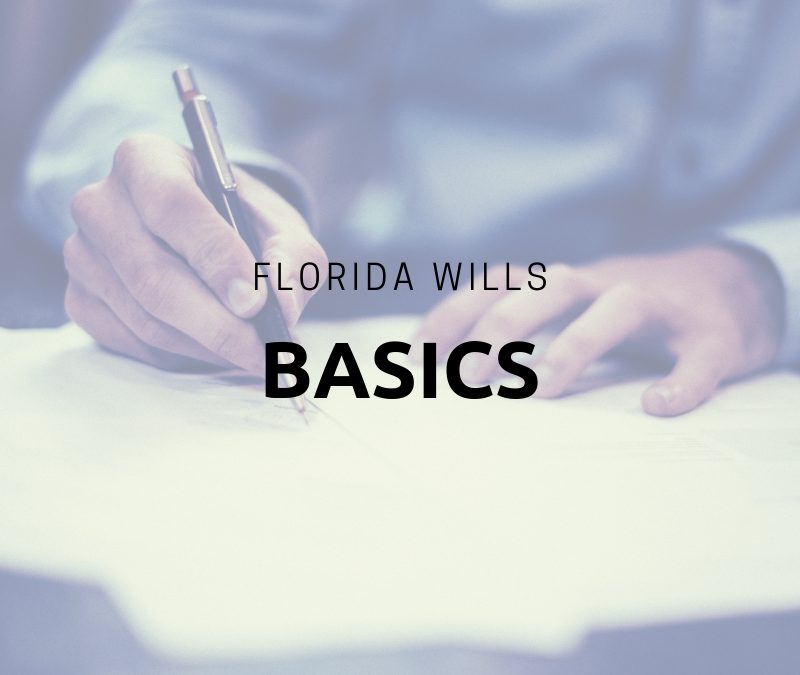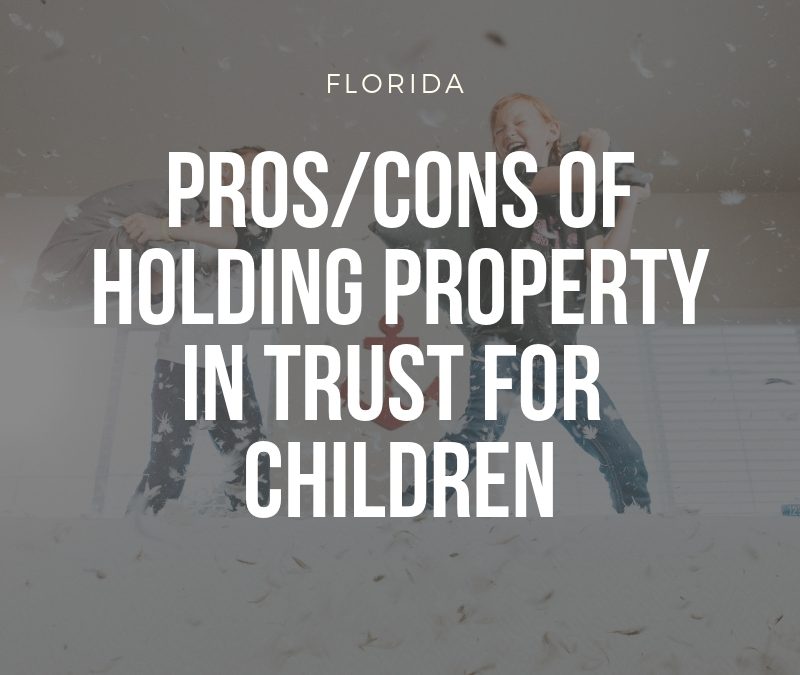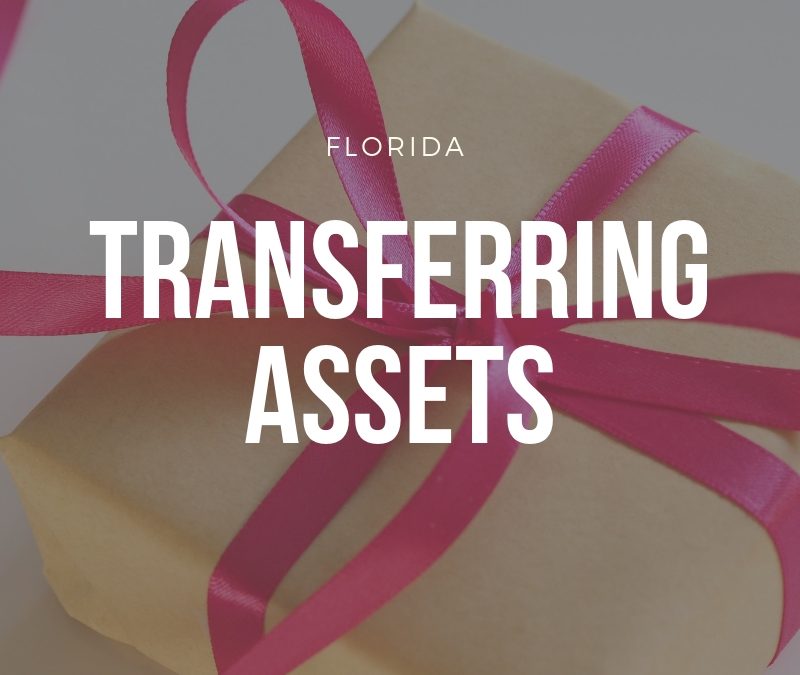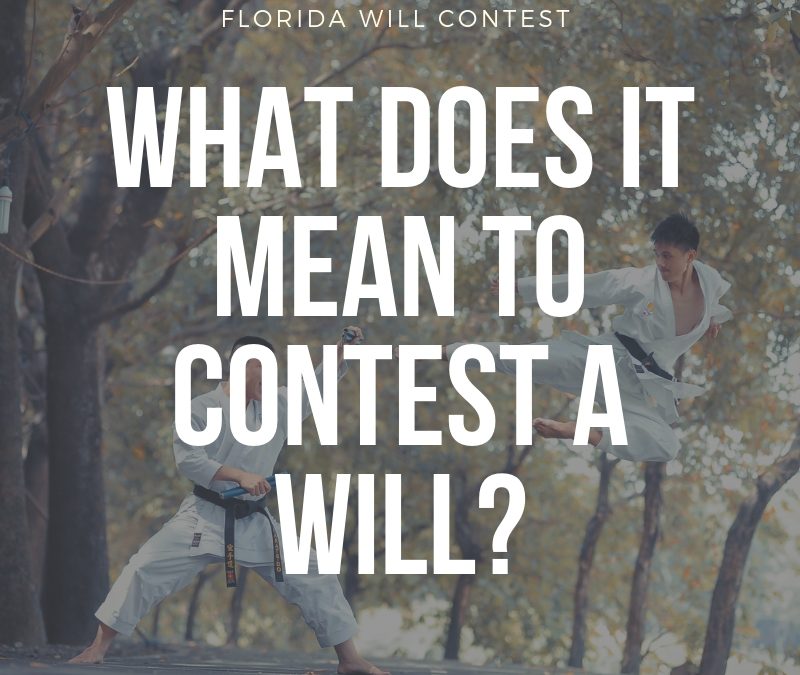Everyone in Florida at some point will address the Florida Homestead Exemption at some point. It can have a dramatic effect on the outcome of a lot of legal issues in Florida. Knowing more is extremely important for all Floridians, or people who own real property in Florida.
The purpose of this blog post is to introduce to you the Florida homestead exemption. By the end of this blog post you should at least have a good understanding how the Florida homestead exemption can affect you and your family.
There are three basic categories or areas of the law where Homestead plays a significant role. Those three areas are:
Creditor protection
Conveyance, Encumbrance, Inheritance or Devise
Taxation
I plan to cover each one of these categories so that you have a comprehensive understanding of how the Florida Homestead laws and the Florida homestead definition play out in the state of Florida. This post shall address the creditor protection aspect.
Before we delve too deeply, we need to look at where all this starts. The foundation of the Florida homestead exemption starts with the Florida Constitution (Here). Take a look at following provisions:
Article X, § 4, of the Florida Constitution
(a) There shall be exempt from forced sale under process of any court, and no judgment, decree or execution shall be a lien thereon, except for the payment of taxes and assessments thereon, obligations contracted for the purchase, improvement or repair thereof, or obligations contracted for house, field or other labor performed on the realty, the following property owned by a natural person:
(1) a homestead, if located outside a municipality, to the extent of one hundred sixty acres of contiguous land and improvements thereon, which shall not be reduced without the owner’s consent by reason of subsequent inclusion in a municipality; or if located within a municipality, to the extent of one-half acre of contiguous land, upon which the exemption shall be limited to the residence of the owner or the owner’s family;
(2) personal property to the value of one thousand dollars.
(b) These exemptions shall inure to the surviving spouse or heirs of the owner.
(c) The homestead shall not be subject to devise if the owner is survived by spouse or minor child, except the homestead may be devised to the owner’s spouse if there be no minor child. The owner of homestead real estate, joined by the spouse if married, may alienate the homestead by mortgage, sale or gift and, if married, may by deed transfer the title to an estate by the entirety with the spouse. If the owner or spouse is incompetent, the method of alienation or encumbrance shall be as provided by law.
I have emphasized some of the important provision so that you can see the basis for what everyone knows is a the “Florida Homestead Law.” As you can see, this constitutional provision is only five paragraphs long. It is short and it is sweet. While you might not realize it at first, there is a lot of rights for Florida citizens packed into this provision. Some of them are good, others are confusing, but, nevertheless, I’m going to try make sense of this for you.
Some of you savvy individuals may have noticed that the provision above doesn’t say anything about a tax exemption. And, you would be right. The provision above centers around creditor protection and conveyance. It does not address the Taxation reduction.
Here is the Florida Constitutional provision for the fundamental basis for the homestead taxation exemption:
SECTION 6. Homestead exemptions.—
(a) Every person who has the legal or equitable title to real estate and maintains thereon the permanent residence of the owner, or another legally or naturally dependent upon the owner, shall be exempt from taxation thereon, except assessments for special benefits, up to the assessed valuation of twenty-five thousand dollars and, for all levies other than school district levies, on the assessed valuation greater than fifty thousand dollars and up to seventy-five thousand dollars, upon establishment of right thereto in the manner prescribed by law. The real estate may be held by legal or equitable title, by the entireties, jointly, in common, as a condominium, or indirectly by stock ownership or membership representing the owner’s or member’s proprietary interest in a corporation owning a fee or a leasehold initially in excess of ninety-eight years. The exemption shall not apply with respect to any assessment roll until such roll is first determined to be in compliance with the provisions of section 4 by a state agency designated by general law. This exemption is repealed on the effective date of any amendment to this Article which provides for the assessment of homestead property at less than just value.
Now that you can see where the Florida homestead exemption is derived, let’s get into different concepts that are important to you. For the purpose of this article, I will be addressing the creditor protection aspects of the above constitutional provision.
In case you missed it earlier, here is the constitutional provision again, in pertinent part:
Article X, § 4, of the Florida Constitution provides as follows:
(a) There shall be exempt from forced sale under process of any court, and no judgment, decree or execution shall be a lien thereon, except for the payment of taxes and assessments thereon, obligations contracted for the purchase, improvement or repair thereof, or obligations contracted for house, field or other labor performed on the realty, the following property owned by a natural person:
(1) a homestead, if located outside a municipality, to the extent of one hundred sixty acres of contiguous land and improvements thereon, which shall not be reduced without the owner’s consent by reason of subsequent inclusion in a municipality; or if located within a municipality, to the extent of one-half acre of contiguous land, upon which the exemption shall be limited to the residence of the owner or the owner’s family; …
(b) These exemptions shall inure to the surviving spouse or heirs of the owner.
Alright, this needs to be flushed out to be better understood.
It is Important To Understand How Creditors Come After Your Home
One of the first concepts that you need to have in mind is “how creditors come after you for money.” Generally speaking, there are two types of creditors. Creditors are either secured or unsecured. A secured creditor has a security interest in an intangible or tangible item, e.g. real estate – mortgage, vehicles – lien on the title. These secured creditors have additional rights. For example, if you have a mortgage on your home, your mortgagee likely has the right to foreclose upon (force the sale) your home. If they force the sale, their lien has first dibs on the sale proceeds. For the most part, I will not be referring to secured creditors. I will briefly mention your mortgage company down below.
For unsecured creditors, the main concept that you need to grasp or consider is “how do unsecured creditors get money from you.” Fundamentally, unsecured creditors cannot automatically go into your bank account, and they can’t repose your lawm mower. They cannot automatically take your stuff.
In order for the unsecured creditor to take anything from you, they must go to court. The first step that unsecured creditor has to do is sue you. They have to initiate a lawsuit against you and, ultimately, acquire a final judgment or order from the court stating you owe that creditor money. Once a creditor has a judgment, only then can an unsecured creditor begin to take things from you.
At this point, the Florida homestead exemption comes into play, as well as all other exemptions set forth in Florida Statute Chapter 222 (Here),. There are a number of legal mechanisms that are creditor has access to after they acquire a judgment. Once a judgment is entered and recorded in the official records of the county in which you owned property, that recorded judgment acts as a lien against all of your real estate in that county.
Your creditor or judgment holder then has the ability to initiate an action to foreclose that lien. To boil it down for the purposes of this article, ultimately the judgment holder could force the sale/auction of your real estate through this foreclosure action. Fortunately, the constitutional provisions set forth above prevents this for homestead property.
Creditor protection
Let’s take a closer look. As you can see, the very first provision provides that: there shall be exempt from forced sale or execution or judgment on the following property: (1) Homestead. This provision shuts your creditor and your judgment holder down, full stop, against your home. Because of this provision, many creditors will not even attempt to foreclose upon your home if it appears as though the exemption applies. Simply put, it would be a waste of that creditors time and money to even attempt to do so.
Of course, if a creditor attempts to foreclose upon your home, you will still have to defend the action because it doesn’t magically go away. In fact, if you do nothing and stick your head in sand, then your home could be foreclosed upon. Therefore, if you are served court documents, you need to pay attention and respond, or, at a minimum, consult with a Florida real estate attorney. If you have a homestead, you need to stand up and say so!
Your ability to defend against the action will be successful so long as you are able to show that your real estate qualifies for the homestead exemption and the creditor is not one of the exceptions (discussed below). This provision stops the foreclosure judgment, i.e. an order to sale your real property at auction. This provision stops the forced sale of your house. This provision allows you keep your home.
Are There Limitations to the Homestead Exemption?
Yes, and that is a BIG yes.
More Money, No Problem. Now, there are limitations to the homestead creditor protection provision. However, value is fortunately not one of those limitations. One of the most beneficial aspects of this provision is that it applies regardless of the value of the property. For example, this creditor protection applies if you home is worth $50,000 or $500,000,000.
So, investing in your home is truly an advisable investment. The more you sink into your home the better. My understanding is that there are value limitations applied in bankruptcy, but that is a topic for another time.
Size Matters. Now, there are “size” limitations based upon the language set out in the constitutional provision. Specifically, it provides that:
a homestead, if located outside a municipality, to the extent of one hundred sixty acres of contiguous land and improvements thereon, which shall not be reduced without the owner’s consent by reason of subsequent inclusion in a municipality; or if located within a municipality, to the extent of one-half acre of contiguous land, upon which the exemption shall be limited to the residence of the owner or the owner’s family;
So, as you can see, the exemption is limited to homes and land that are smaller than 160 acres of contiguous land outside the municipality and ½ acre inside a municipality. While there is a size limitation, you should know that this exemption can also apply to mobile homes, boats, property used for both residential and commercial purposes, and long-term leases. Homestead analysis can be complex, so be sure to consult with an attorney before you make decision that you could later regret.
Natural Person. Are there other limitations other than size? Turns out there are. When reading the constitution, statutes, or case law, you have to read every word. One word can change the meaning of everything. While many people often look over a piece of this provision, it is extremely important. A major limitation on this exemption is the fact that the “homestead” must be “owned by a natural person.” Simply put, limited liability companies and corporations are out. Therefore, if you title your home in the name of your LLC, you may be losing out on some significant protections.
Additionally, there are residency and intent requirements. This is a complex issue that requires case law analysis on differing factual circumstances. For instance, if you are a snow bird that spends ½ of the year up north and ½ of the year in your Florida home, does homestead apply? More than likely, I will do an entire separate article on some of the differing factual scenarios that I have run into. Suffice it to say that the normal person who lives in their home year-round will have no problems.
I mention LLCs and corporations, but irrevocable trusts, revocable trusts, and land trusts are a different question and will likely be addressed in another article. Suffice it to say that the homestead exemption can still be intact even if it is held by a trust. When analyzing whether the property will qualify when it is titled in another entities name, the task can be complex, so I would strongly encourage the use of a real estate attorney.
Are There Exceptions to the Homestead Creditor Protection?
Yes, and that is a BIG yes.
There are exceptions to the homestead creditor protection. For instance, set out in the constitutional provisions are 3 exceptions. Specifically, the provision states:
“except for the payment of taxes and assessments thereon, obligations contracted for the purchase, improvement or repair thereof, or obligations contracted for house, field or other labor performed on the realty,”
You Have To Pay Your Taxes. As you can see, the first exception is for “payment of taxes.” Essentially, you still have to pay your taxes. This concept is true throughout all of Florida law. You see this play out when you get notice of unpaid taxes, notice of tax certificates being issued, and notices of tax deed sales.
So, as general advice, it is always better to pay your taxes before you pay an unsecured creditor.
You also Have To Pay Your Mortgage Company and Your Builder. The next two provisions are also pretty obvious. These provisions go directly to money you borrowed to buy the house, i.e. “obligations contracted for the purchase.” This is your mortgage company. Just in case the foregoing was giving you the idea that you didn’t have to pay your mortgage, think again. I have defended enough foreclosures to tell that they can and will come from your home. So, pay your mortgage.
The last exception highlighted goes directly to people that you hired to improve or repair the property. This normally comes in the form of a construction liens. So, to put it simply, you can’t hire someone to build you a pool and not pay them.
Conclusion
The Florida Homestead Exemption is one of the best asset protections tools available to Florida Citizens. Just remember, that if you own a home of appropriate size in Florida and live there, then likely your home will be protected from most creditors. When in doubt seek the advice of a Florida Asset Protection and Real Estate Attorney.
I hope this blog post has introduced you to Florida Homestead Exemption. I also hope that it’s giving you a little bit of direction and perhaps the basic information you need to protect yourself and family.







